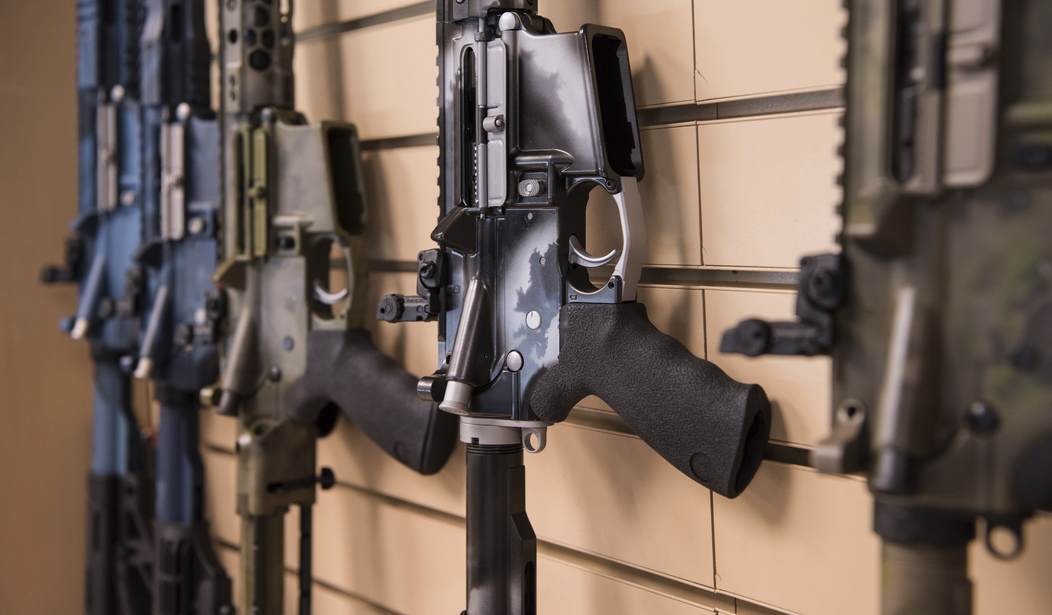While the U.S. Supreme Court prepares to weigh in on a case dealing with the right to carry, the seven justices on the Illinois Supreme Court heard oral arguments this week in a challenge to a Chicago suburb’s ban on so-called assault weapons. The city of Deerfield, Illinois put its ban in place back in 2018, and the following year a judge in Lake County ruled that the the new law was preempted by the state’s Firearm Owners Identification Card Act and the Firearm Concealed Carry. Last year, however, the state’s Court of Appeals reversed that opinion, finding that the city did have the ability to impose a ban on so-called assault weapons and high capacity magazines did not violate state law.
The issue here isn’t one that hinges directly on whether or not the ban violates the Second Amendment rights of residents, but rather whether the city had the authority to create a new ban by amending an existing ordinance.
The challenges argued the ban was forbidden under the 2013 laws that created a new legislative framework for legal firearm ownership after a federal court in found Illinois’ previous gun laws were unconstitutional the year before.
Those new laws — the Concealed Carry Act and the Firearm Owners Identification Card Act, or FOID Card Act — allowed local governments to pass their own assault weapons regulations as long as they did so within 10 days of the Concealed Carry Act’s passage in July 2013. The law also specifically allowed for those regulations to be amended in the future.
Back in 2013, the Deerfield Village Board passed an ordinance defining assault weapons and mandating certain measures be taken when transporting or storing them, but stopping short of an outright ban.
Judge Kathryn Zenoff agreed with the village’s interpretation that lawmakers in Springfield had provided for a brief window for local governments to retain the power to regulate assault weapons — and the village had done so.
“Deerfield understood that if it failed to regulate such weapons by July 20, 2013, it would forever lose its power to do so,” Zenoff said in her 36-page opinion. “Although Deerfield was not ready to impose a total ban on assault weapons, it did not want to lose its regulatory authority on this matter. Deerfield believed that if it timely regulated assault weapons, it could amend those regulations at any time and in any manner it wished.”
Deerfield’s playing some semantic games with their defense of the law, arguing that the amended ordinance doesn’t actually ban the ownership of any modern sporting rifle, but rather forbids the possession and storage of those guns within the city limits. During Wednesday’s oral arguments, plaintiffs’ attorneys Brian Barnes and David Sigale were peppered with questions from the justices about the scope of the ordinance and whether it truly amounts to a gun ban.
Chief Justice Burke asked Barnes how he reached the conclusion the Deerfield ordinance prohibited ownership of assault weapons.
Barnes reiterated an argument he made earlier in his presentation that Deerfield used its amendatory powers to actually create fresh legislation producing an entirely new law. He compared it to the Republican push to repeal and replace the Affordable Care Act and Democrats desire to amend it.
“It’s a question of possession, not ownership,” Barnes said. “The amendment had the effect of creating a new law,” he added, arguing it seriously impacted ownership.
Garman asked Wilson to explain why Deerfield’s amendment was not a totally new law, citing the dissenting opinion of the appellate court. Wilson said the amendment changed where the owner of an assault rifle could use it, not whether the person could own the gun.
“Anyone can own it, you can’t store it in Deerfield,” Wilson said. “You have to store it outside the village. If you want to go hunting with it, fine. If you want to target shoot, you have to do it somewhere else.”
No, “anyone” cannot own an AR-15 in Deerfield now. Many gun owners may not have a place outside the city where they could store their rifle, and as a result have had to either get rid of their them or run the risk of incurring massive fines if they’re caught with their gun in their home. The city’s original ordinance regulated how “assault weapons” had to be stored and transported within the city, but it was amended to completely outlaw the possession and transportation of the rifles. No matter how much the city’s attorneys want to downplay the impact of those changes, it’s ludicrous to claim that the new ordinance has no effect on the ownership of modern sporting rifles.
It will likely be several months before the state Supreme Court issues its decision in this case, but the court could also soon end up hearing another big 2A-related lawsuit: a challenge to Illinois’ FOID card requirement. A downstate judge ruled the FOID card requirement unconstitutional earlier this year, at least when it comes to guns in the home, and the state’s Attorney General has asked the Supreme Court to hear his appeal. Both cases will go a long way towards determining whether the state of Illinois will be forced to treat the Second Amendment as a fundamental right, or whether it can get away with considering it a privilege that can only be granted by the state and its political subdivisions.









Join the conversation as a VIP Member